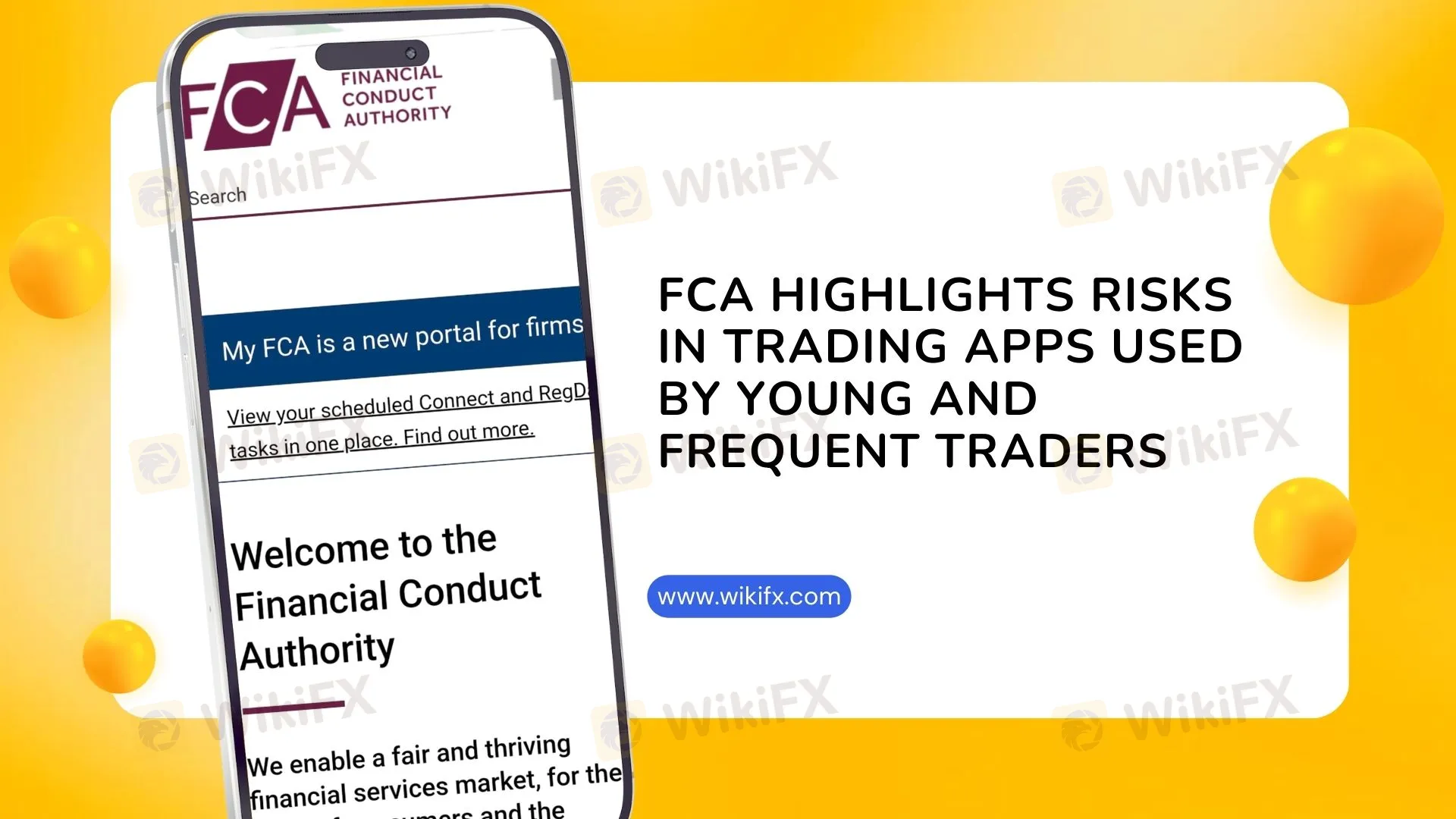简体中文
繁體中文
English
Pусский
日本語
ภาษาไทย
Tiếng Việt
Bahasa Indonesia
Español
हिन्दी
Filippiiniläinen
Français
Deutsch
Português
Türkçe
한국어
العربية
FCA Highlights Risks in Trading Apps Used by Young and Frequent Traders
Abstract:A new FCA report finds that trading app features may drive excessive trading among younger users, with some platforms lacking adequate checks for high-risk products.

The UK Financial Conduct Authority (FCA) has released a multi-firm review and behavioral research highlighting key risks associated with trading apps, particularly those used by young and frequent traders.
Key Findings on Business Models and Engagement Practices
The review covered 12 trading app providers, revealing diverse business models. Some acted as introducers, directing users to affiliated platforms. Revenue streams included commission, subscription fees, and interest from idle balances. FCA noted that some firms lacked sufficient oversight of pricing fairness and investor value.
Firms employed digital engagement practices (DEPs), such as push notifications and gamified incentives. While all firms showed some awareness of the risks, FCA cautioned that some app designs may unintentionally drive higher trade frequency and risk exposure.
Target Market and Product Suitability Concerns
The FCA observed that several apps did not adequately define their target customer profiles. In some cases, complex or high-risk products were accessible to users without sufficient knowledge or experience. Appropriateness testing was found to be weak in certain apps, allowing unqualified investors to access unsuitable offerings.
Behavioral Research Shows Demographic Impact
FCA's behavioral study indicated that trading apps with more gamified elements attracted users with lower income and higher trade frequency. These users also tended to have worse investment outcomes, raising questions about how app design may be linked to real-world financial results.
Conclusion
The FCA has not mandated specific changes but encourages firms to examine their app designs, especially concerning user engagement features, pricing transparency, and risk control procedures. With trading apps rapidly growing in popularity, especially among younger demographics, proper oversight remains critical to ensuring responsible investment access.
Disclaimer:
The views in this article only represent the author's personal views, and do not constitute investment advice on this platform. This platform does not guarantee the accuracy, completeness and timeliness of the information in the article, and will not be liable for any loss caused by the use of or reliance on the information in the article.
Read more

NinjaTrader Fined $250,000 for Anti-Money Laundering Lapses
NinjaTrader fined $250K by NFA for AML failures, missing suspicious trades and high-risk accounts. Learn about the brokerages compliance issues and regulatory history.

FXPRIMUS: A Closer Look at Its Licences
Despite its global presence, FXPRIMUS faces serious regulatory red flags and a flood of client complaints, earning it a troubling 2.46/10 rating on WikiFX. Keep reading to find out what is wrong with this broker!

The Scam Looked Real Until RM147,350 Disappeared
A financial analyst from Kuala Terengganu has lost RM147,350 to a sophisticated investment scam. The fraud was run by a syndicate that posed as a legitimate stock trading platform. The victim believed he was making a smart financial move. Instead, he lost his savings, borrowed funds, and company money to a non-existent scheme.

Red Flags Uncovered: IFC Markets Accused of Blocking Withdrawals
Recent complaints logged by users of WikiFX, a global broker regulatory query platform, have brought IFC Markets into the spotlight for all the wrong reasons. Multiple traders have reported serious difficulties withdrawing their funds, raising red flags about the broker’s trustworthiness and operational integrity.
WikiFX Broker
Latest News
Capital.com Reports Strong Growth and Leadership Changes
India GDP: Growth at 7.4% faster than expected in fourth quarter
NinjaTrader Fined $250,000 for Anti-Money Laundering Lapses
OANDA Fined $600K by NFA Over Rule Breaches and Crypto Claims
Key Figure Behind $230 Million Crypto Fraud Arrested After Two Years on the Run
SEC Drops Lawsuit Against Binance in Major Crypto Enforcement Shift
MH Markets Broker Review
Use Leverage Like a Pro | Avoid the Mistakes That Wipe Traders Out
IG Group will no longer provide services in South Africa
Is GODO a Licensed Broker? Stop Guessing — Get the Facts, Now
Currency Calculator


